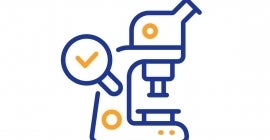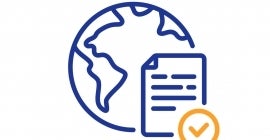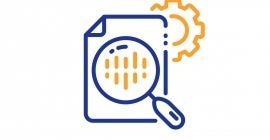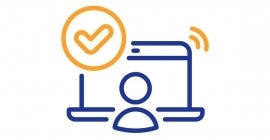- About
- Admissions
- Programs
- Students
- Faculty
- Research
- Institutional Research Training Grants
- Office of Research and Scholarship
- Nursing Research and Scholarship HUBS
- HUB for Excellence in Digital Health Research
- Genomics of Patient Outcomes HUB
- Sleep and Circadian Science Research Hub
- Nursing Health Services and Policy Research HUB
- Cancer Survivorship HUB
- Maternal/Perinatal and Reproductive Health Research Hub
- Aging and Gerontological Nursing Research HUB
- Nursing Education and Clinical Research for EBP HUB
- Active Grants
- Undergraduate Research
- Continuing Ed
- Alumni
- News
- Events
Nursing Education and Clinical Research for Evidence-Based Practice HUB

The field of nursing education is rapidly evolving. The nursing field is facing a local, regional, and national shortage of nurses, which, in turn, means fewer nursing faculty. Patient care is more complex, with people living longer with multiple chronic diseases and an emphasis on reducing health disparities. Nursing education is moving toward competency-based education emphasizing clinical judgment processes, interprofessional collaboration, and care for patients from medically underserved areas or populations. Nursing practice must be based on evidence and clinical faculty are well positioned to guide evidence-based practice changes.
With improved technologies, simulation education is shown to enhance students learning. With changes in teaching, research is needed to ensure that innovations support the teaching and learning of nursing competencies. The Nursing Education and Clinical Research for Evidence-Based Practice (EBP) HUB provides a forum for support, dialogue, and promotion of the scholarship of nursing education and clinical research for evidence-based practice (EBP) for faculty and graduate students interested in enhancing their effectiveness as a teacher and sharing their expertise through scholarship.
While all Pitt nursing faculty are welcome to participate, this HUB is specifically targeted toward Appointment Stream faculty, as well as Nursing Education Minor/Certificate students, teaching assistants, and graduate students.
If you are interested in the scholarship of teaching and learning in nursing, please join us.
For more information about this research HUB, please contact:
Brenda Cassidy, DNP, RN, MSN, CPNP-PC
Associate Professor
Health Promotion & Development
cassb@pitt.edu
412.648.9253
Laura Fennimore, DNP, RN, CNE, NEA-BC, FAAN
Professor
Acute and Tertiary Care
Laf36@pitt.edu
412.624.1853
Annual Award and Grant Opportunities
The Nursing Education Clinical Research for EBP HUB offers one grant opportunity each year.
|
Grant Name |
Focus |
Financial Award |
Calls for Proposals |
Award Period |
| The Eleanor Jane Knox Educator Award | Undergraduate Clinical Nursing Education Research | $4000 | Spring (January - March) | 1 year beginning in the summer |
Nursing Education and Clinical Research for EBP HUB Resources

Research vs. QI
Information to make sure your project is research and not QI.

Get started and ask a research question
Thoughts to transform your questions about teaching can become research questions.

Find a journal
Browse journals to see what is currently being published and where you can publish your research.

Complete an IRB
Step-by-step process to do an exempt IRB at the University of Pittsburgh.

Write a literature review
Begin crafting a review of literature that addresses your interests and current publishing topics.

Apply an educational theory
Ground your research in an educational theory or model.

Select an educational research design
Match your research question / aim to the correct design allowing you to collect and analyze data that answers the question.

Use statistical resources
Ask for a consultation and view resources to understand the statistical analysis required for your question and research design.
